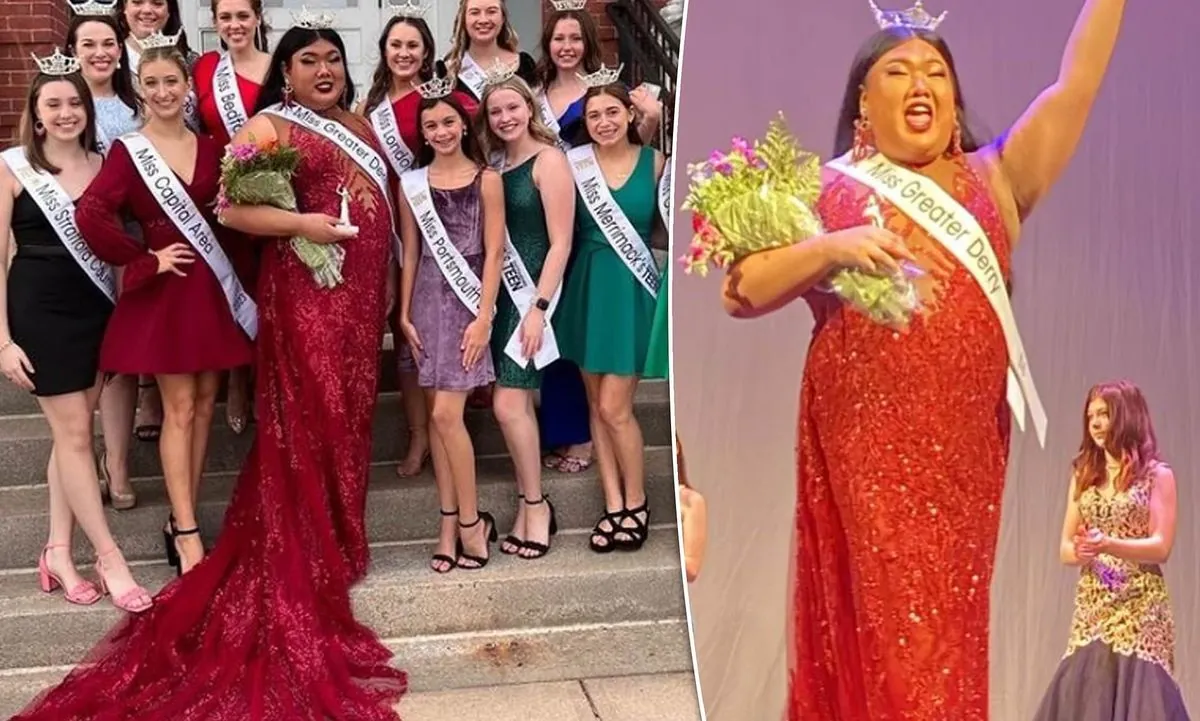Tonga's Miss Galaxy: A Pageant Challenging Laws and Traditions
In Tonga, the Miss Galaxy pageant for trans women defies discriminatory laws, showcasing a clash between traditional acceptance and growing conservative influence. Contestants brave societal challenges for a chance at self-expression and change.

In the heart of the South Pacific, the Kingdom of Tonga recently hosted its annual Miss Galaxy pageant, a unique event that challenges both legal restrictions and societal norms. This beauty contest for trans women, known locally as leitis, takes place in a nation where laws technically criminalize trans life, creating a complex backdrop for the participants' quest for acceptance and recognition.
Sophia Vea, a 21-year-old contestant, epitomizes the struggles faced by many leitis in Tonga. Disowned by her father and bullied by classmates, Vea's journey to the Miss Galaxy stage represents a bold step towards self-acceptance in a society grappling with changing attitudes towards LGBTQ+ individuals.
The pageant, which began in 1992, has become a platform for leitis to assert their identity and raise awareness about their community. Joey Joleen Mataele, a prominent trans activist and distant member of the royal family, explains the significance of the event:
"Miss Galaxy is mainly a platform for all the young ones to lose their fear."
This year's contest featured only five participants, reflecting the challenges faced by the leiti community. Many have sought asylum abroad, fleeing discrimination and seeking opportunities unavailable in Tonga.
The pageant's existence contrasts sharply with Tonga's legal framework. Piveni Piukala, a member of parliament, has pledged to attempt decriminalization of aspects of leiti life, stating:
"This is long overdue. The question is, do we accept them as people or not?"
However, reform faces significant obstacles. Tonga's unique status as the only monarchy in the Pacific region, coupled with the growing influence of conservative Christian denominations, complicates efforts to change discriminatory laws.
The increasing presence of evangelical ministries and the Mormon Church has led to a backlash against LGBTQ+ rights in recent years. This shift stands in contrast to the traditional Tongan concept of fakaleiti, which has historically accorded a respected place in society for individuals who identify as a third gender.
Despite these challenges, the Miss Galaxy pageant continues to provide a space for leitis to express themselves freely. The event not only offers a chance for personal growth but also serves as a potential pathway to opportunities abroad. Kainna Lewis, a former winner, used her victory to claim asylum in the United States, where she now lives in San Francisco.
The competition itself is a vibrant spectacle, with contestants showcasing their talents through dance, lip-syncing, and elaborate costumes. This year's event saw Sophia Vea and Giovanna Mafi emerge as the top contenders, with Mafi ultimately claiming the crown.
While the pageant celebrates the leiti community, it also highlights the ongoing struggles they face. Recent years have seen violent incidents targeting leitis, underscoring the urgent need for legal and societal change.
As Tonga navigates the complex interplay between tradition, religion, and human rights, the Miss Galaxy pageant stands as a testament to the resilience and determination of the leiti community. In a nation known for its unique culture and status as one of the few countries never colonized by a foreign power, the pageant represents another facet of Tonga's complex identity.

The future of Miss Galaxy and the broader acceptance of leitis in Tonga remains uncertain. However, as contestants like Sophia Vea and Giovanna Mafi continue to step onto the stage, they not only compete for a crown but also for a more inclusive and accepting society.


































